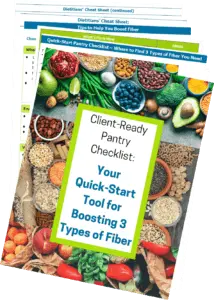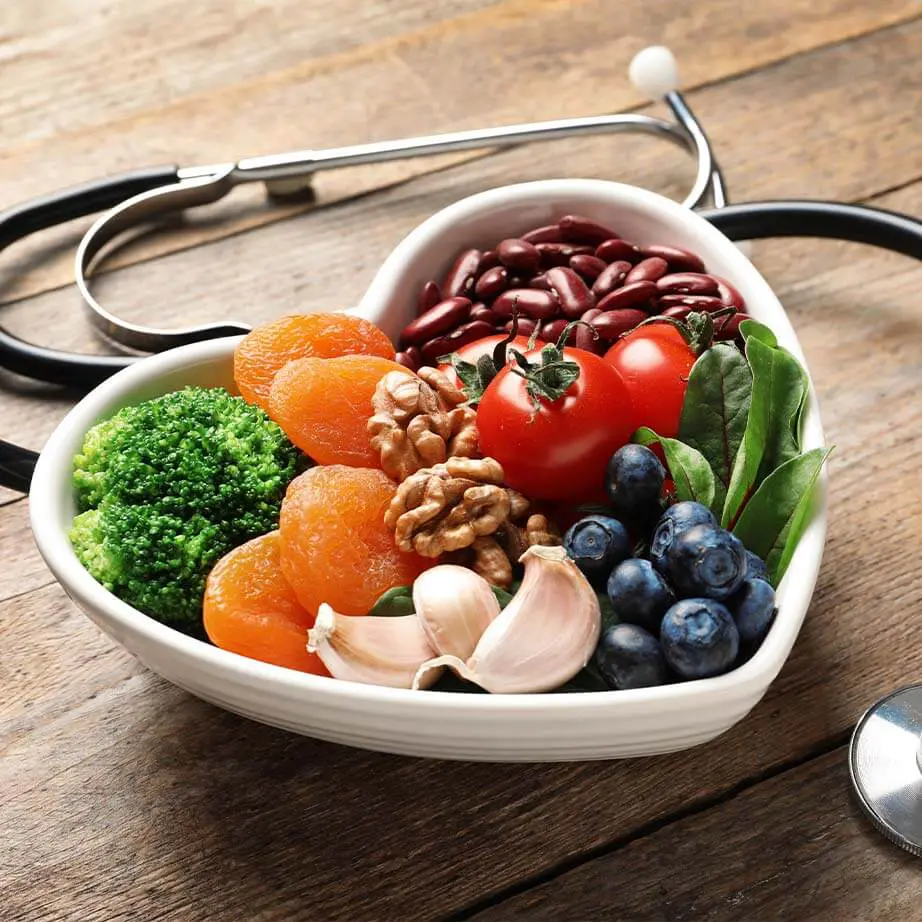
What Foods Help Lower Blood Pressure? Navigating the Research
Inside: Dietitians are often asked, “What foods help lower blood pressure?” And there’s good news: Bring savvy food choices together in a mostly plant-based diet, and you can create an effective strategy for preventing and treating hypertension… including for people dealing with both high blood pressure and cancer.

That online search will show lots of foods that claim some blood pressure control benefit based on some study. The problem: not all this evidence is equally strong. And a list of 100 blood pressure-lowering foods leaves people so overwhelmed that it’s tempting to either give up or just pick one without understanding the science behind it.
There’s got to be a better way.
Key Take-Away Points:
♦ Reducing blood pressure tackles the #1 modifiable risk factor for cardiovascular disease, and it’s a critical target for millions of adults. Blood pressure isn’t all-or-nothing: each drop helps.
♦ Diet can provide a variety of nutrients and compounds that work together to lower blood pressure, in part by reducing blood vessel stiffening and dysfunction.
♦ Sodium excess raises blood pressure for most people. The solution calls for flavoring food differently and for alternative choices for quick and easy meals that aren’t dominated by high-sodium ultra-processed foods.
♦ Dietary patterns – the collection of food choices – are how foods really provide benefit. But claims you see about one “best” dietary pattern for blood pressure aren’t standing on very firm ground.
♦ Answering your top questions about foods’ influence on blood pressure: Lots of foods show potential. But think critically before trusting every headline that proclaims a food or supplement as a solution.
Multiple different changes in eating habits can reduce blood pressure and promote vascular health. The choice of which ones a dietitian recommends depends:
- Some choices may have a bigger effect than others.
- Evidence supporting some foods is more reliable.
- Strategies with the best fit depend on an individual’s starting point. Which habits are furthest from recommendations? What other health conditions need to be considered? Which choices are the best fit with personal preferences and lifestyle?
Let’s explore the research investigating how to make choices about foods that help lower blood pressure….
The Essential Bad News – And Good News – About High Blood Pressure
Almost 1 in 2 US adults has hypertension, according to the latest statistics.
When a condition is as common as high blood pressure is, it’s easy for people to overlook it as a threat. But high blood pressure is not just “pressure.” In the US, it’s the #1 modifiable risk factor for CVD and CVD-deaths.
Key message points on why a call to action is critical:
- Risk does not begin at 140/90 blood pressure. That’s why current high blood pressure guidelines have eliminated the old term “pre-hypertension”. – Blood pressures previously categorized by that term are clearly not pre-risk.
- Only about 1 in 4 adults with hypertension has their condition under control (defined as < 130/80). Less than half (44%) even drop under 140/90.
- Each 5 mm Hg drop in systolic blood pressure reduces risk of a major cardiovascular event by 10%. (That includes, for example, risk of fatal and non-fatal heart attack, heart failure, and stroke.)
What Foods Help Lower Blood Pressure?
When considering what to eat to lower blood pressure, put well-established strategies like limiting sodium consumption in the context of wider research. For example, oxidative stress and chronic inflammation can create a vicious cycle, each increasing the other. Mounting evidence – from studies in older animals and in humans – shows that these may be major contributors to endothelial dysfunction and stiffening of large arteries, which in turn can increase blood pressure.
Make Vegetables and Fruits the Stars
Swapping food proportions to give these choices most of the plate is important, but it’s only part of the goal. Aim for variety throughout the week, instead of focusing on a single “super food”. Vegetables and fruits supply minerals and phytochemicals that seem to act through several different pathways. Some may reduce blood pressure directly, other foods support vascular health, reducing harmful effects on blood pressure from artery stiffening.
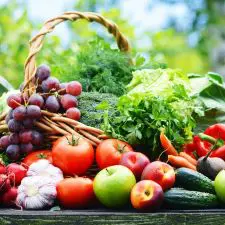
- Potassium- and magnesium-rich choices, including citrus fruit and dark leafy greens
- Polyphenol-rich choices like berries, apples, grapes, and pears
- Nitrate-rich vegetables, like spinach, kale, beets, and celery
Evidence is still limited for some other foods’ effects on blood pressure. But since they seem to bring multiple health benefits, check these, too:
- Cruciferous vegetables like broccoli, cabbage, and cauliflower
- Onion-family vegetables, supplying allyl sulfur compounds
- Fiber-rich fruits and vegetables – especially those with viscous or fermentable fiber, such as avocados, pears, artichokes, asparagus, sweet potatoes, and winter squash
Some people ask whether fruit is really helpful. They’re concerned about headlines that cast all foods with any sugar as bad choices. But lumping fruits with candy and cookies is like grouping the winter gloves from your closet with gardening gloves. Studies link fruit consumption with a modest but clinically significant lower blood pressure –and with lower risk of CVD.
Want a free client-ready tip sheet?
Boosting Magnesium: How to Fill a Gap with Simple Steps
⇒ Find nutrient-rich plant food choices that boost magnesium, a nutrient in diets that seems to support healthy blood pressure.…
⇒ Get the tip sheet… and get future nutrition research updates straight to your email inbox:
Click here.
Reduce Sodium by Swapping Out Highly Processed Foods
Many people think they meet recommendations to limit sodium because they don’t add much salt to their food. But a few food choices each day like canned soup, commercial pasta sauce, “seasoned” rice and other grain mixes and canned vegetables that are not labeled “No Added Salt” to send the daily total far over the top.
- If sodium is well beyond the recommended limit of 2300 mg/day, start with a realistic target. In general, each 1000-1150 mg/day decrease in sodium can lower systolic blood pressure from 1 to 3 mm Hg. For people who are older or start off with higher blood pressure, the same drop can lower blood pressure even more, as highlighted in a meta-analysis of randomized controlled trials.
- If concerns about flavor are the barrier, have fun exploring how herbs, spices, garlic, vinegar, lemon and other flavorings can give delicious food without counting on the saltshaker for all the flavor. Pro Tip: because salt amplifies your perception of other flavors, if you’re reducing salt, make sure to boost the amount of these other flavorings.
- For many people, excess sodium doesn’t come from a search for flavor, but convenience. They can often achieve the biggest drop in sodium by focusing on swapping out frequently-consumed processed foods for other choices. The key is exploring which choices they’ve been relying on as time-savers, and exploring alternative quick and easy options. A few doable tweaks can reach a target of dropping total daily sodium by 1000 to 1500 mg.
How to Create a Mostly Plant-Based Diet for Better Blood Pressure
Although people may ask about what foods help lower blood pressure, the focus for reaching and maintaining a healthy blood pressure comes down to overall eating habits. Include more protective foods while reducing consumption of foods that raise blood pressure and promote vascular aging.
Studies show a variety of dietary patterns can accomplish this, and it’s not clear that one is necessarily better than all others…. That’s especially important when you consider the goal of this dietary pattern as something that fits an individual’s preferences and lifestyle so that it can become a long-term way of eating.
Check what a study actually compares to test a dietary pattern’s link to blood pressure or risk of hypertension. Usually it’s:
> High versus low scores for how closely people’s diets come to the pattern
> A dietary pattern likely to be healthy versus a typical Western (unhealthy) diet. Neither validates one healthy diet as better than another healthy dietary pattern.
Lots of ways to eat can help lower blood pressure.
- Vegetarian diets are what may come to mind when we’re talking about plant-based diets. And both completely plants-only diets and lacto-vegetarian diets are associated with better blood pressure in observational studies like the Adventist Health Study-2, and reduce blood pressure in controlled intervention trials. While vegan and vegetarian diets as a whole are clearly blood pressure-friendly eating patterns. But studies are inconsistent, and these diets don’t necessarily protect against hypertension better than other plant-focused dietary patterns, especially after researchers adjust for body mass index (BMI).
- The DASH diet, including modifications that don’t keep total fat low, has some of the strongest support as an eating pattern that both prevents hypertension and reduces blood pressure in people with hypertension. A noteworthy highlight: research shows that this dietary pattern makes an especially big difference in lowering blood pressure when people have trouble reducing sodium to recommended levels. That includes lots of people today.
- A Mediterranean diet can also help reduce or avoid high blood pressure, according to some studies. Exciting work shows potential for improving endothelial function and other aspects of cardiovascular health. But it’s important to clarify specific choices involved, since the concept of a Mediterranean diet may mean different things in different studies, and in different individuals’ perceptions.
- Low-carbohydrate diets make headlines, but it’s important to dig deeper. Many of the foods noted above with protective nutrients and phytochemicals that create a mostly plant-based diet contain carbohydrate (including dietary fiber). Reducing carbohydrate consumption is one way to decrease insulin resistance and the damage it causes to vascular function and inflammation. But another option is to be more selective about carbohydrate quality and portion sizes. And that leaves more room for the foods providing nutrients and compounds that support a healthy blood pressure.
◊ ◊ ◊ ◊ ◊ ◊ ◊
Want more about a DASH diet vs. Mediterranean Diet?
Click here for a focused research review
◊ ◊ ◊ ◊ ◊ ◊ ◊
Plant-Based Diet for Blood Pressure? Look Beyond the Surface
Among middle-aged adults without hypertension at baseline in the Atherosclerosis Risk in Communities (ARIC) Study, people with diets higher in plant foods and lower in animal foods – represented by an overall plant-based diet index – were less likely to develop hypertension during a median 13 years of follow-up.
Look closer – the details tell an important story:
- People with a score focused on higher intake of healthful plant foods had 13% less risk of developing high blood pressure than people with lowest scores on a healthy plant-based diet index after adjusting for potentially confounding influences.
- But people whose plant-based eating habits emphasized less-healthful choices were not at lower risk. Their risk of hypertension was 13% higher than people with fewer unhealthy plant-based choices.
What’s the “Best” diet for blood pressure? Watch out for headlines claiming one diet is best. Often the comparison in a study was to a typical Western (unhealthy) diet. That doesn’t show how the diet compares to another healthy… Click To Tweet
Questions People Ask Dietitians About Foods that Lower Blood Pressure
Expectations
“How long does it take to lower blood pressure?”
Change in diet can begin reducing blood pressure within a few days. But research has shown that even 2 weeks is too soon to see the full effect. Within 3 to 6 months, you can truly see the effectiveness of changes in diet and physical activity on blood pressure.
Do eating and other lifestyle habits really matter if someone’s on blood pressure medication?
Yes, some eating choices can make it easier for blood pressure medications to effectively reduce blood pressure. That can mean lower doses (and less potential for side effects) or avoiding need for additional medications. Some ways that foods tend to raise or lower blood pressure overlap with mechanisms through which medications work. So in people with equally high blood pressure, diet and exercise alone may produce a bigger drop in blood pressure than in those who are also benefiting from medication. But studies showing that a healthy diet reduces blood pressure have included people on blood pressure medication.
Beverages
“Does Caffeine raise your blood pressure?” 
Caffeine can raise blood pressure for up to 4 hours after consumption, especially in short-term studies. Adaptation occurs within a week for most adults, reducing effects. The source of caffeine probably changes its effects. When caffeine comes from soft drinks, which lack the protective polyphenols found in tea and coffee and are laden with excess added sugar, this may show a more harmful blood pressure response in people sensitive to caffeine.
“Does Coffee lower blood pressure?” “Can coffee cause high blood pressure?”
Caffeinate coffee shows little to no effect on blood pressure in controlled trials, even among most people with hypertension. This may reflect phenolic ani-inflammatory phytochemicals in coffee a counter-balancing the effects of caffeine. In healthy people, habitual consumption of 3-5 eight-ounce cups [not big mugs!] of coffee per day are associated with lower risk of cardiovascular disease. But people with uncontrolled high blood pressure should avoid consuming large amounts of any source of caffeine, and for some people with hypertension, 3 or more cups of coffee a day may make blood pressure control more difficult. General health recommendations call for keeping total caffeine consumption from all sources to no more than 400 mg/day for non-pregnant adults.
“Is Tea good for high blood pressure?”
Tea (“regular” green or black tea) may help fight hypertension, based on results of human intervention trials and animal studies. Tea’s polyphenol compounds seem to help boost compounds that reduce inflammation in artery walls and help them dilate (relax). And they seem to support antioxidant defenses, too. But it doesn’t reduce blood pressure for everyone. When it does, the drop is usually modest (1 or 2 mm Hg) and relates to long-term consumption of several cups daily. Consider it an optional strategy, not a strongly supported recommendation.
“Does Alcohol affect blood pressure?”
Yes. In people who have been consuming 2 or more standard alcoholic drinks/day, avoiding or reducing it can lower systolic blood pressure 3-4 mm Hg. A standard drink is defined based on alcohol content. Typically, 1 drink equals 5 ounces of wine, 12 ounces of beer, or 1.5 ounces of 80-proof distilled spirits. With today’s large bottles and beverage glasses, it’s easy to consume more alcohol than you realize.
Other Foods that May Affect Blood Pressure
“Does Sugar raise blood pressure?” 
There’s not much research that examines the influence of total added sugar consumption. But in prospective cohort studies (observational studies that follow people over time), each increase in consumption of sugar-sweetened beverages is linked with a greater risk of hypertension. Most of these studies adjusted analysis for the influence of weight (using BMI) and total calorie intake, so the reason for the association isn’t clear. These beverages are the largest source of added sugars in the US diet, so they provide a reasonable clue about sugar consumption’s effects.
Randomized controlled trials in healthy people show a slight drop in blood pressure by limiting added sugar intake. But the evidence from these studies was graded as low-quality. And current evidence doesn’t show whether blood pressure in people with insulin resistance would show greater sensitivity to added sugars.
“What about salt alternatives for high blood pressure?” “Do salt substitutes help?”
Analysis of controlled intervention trials found that salt substitutes significantly reduce blood pressure when replacing regular salt. Blood pressure is reduced regardless of differences in age, baseline blood pressure, body mass index, or use of blood pressure medication.
How much of a drop in blood pressure any individual can expect from salt substitutes varies. Products vary in the amount of sodium vs potassium they contain. And although reducing salt use in cooking and at the table can help, in the US (and most Western countries), it’s not addressing the major source of sodium — commercially processed foods.
Safety: For most people, increasing potassium safely and effectively helps reduce blood pressure. But high amounts of potassium from supplements or salt substitutes may increase risk of dangerously high blood levels of potassium in people whose kidneys aren’t able to filter out excess potassium or who take medications (often used to treat high blood pressure or heart failure) that decrease potassium excretion in the urine. So people should double-check with their healthcare provider before using salt substitutes.
“Can healthy fats lower blood pressure?” 
Swapping unsaturated fats instead of foods high in saturated fat is a heart-healthy eating strategy grounded in reaching healthier levels of blood lipids. It’s not clear whether changing the type of amount of fat consumed affects blood pressure, too.
Nuts and unsaturated oils supply mono- and poly-unsaturated fats that promote healthy blood lipids. And they’re key elements of DASH diet modifications in the OmniHeart trial that reduced blood pressure even more than the original DASH diet. Extra virgin olive oil and nuts also provide polyphenols that could contribute to blood pressure control by reducing vascular aging. Nuts boost magnesium consumption. And walnuts provide a plant form of omega-3 fat (ALA) that is under study for potential effects that would support blood vessel health.
Including fish in a mostly plant-based diet at least twice a week might provide additional benefits. So far research has not shown a direct link between blood pressure and seafood or the omega-3 fats (DHA and EPA) naturally higher-fat forms provide. But it’s possible that this reflects difficulty teasing out effects in people who eat high-sodium convenience forms of fish or deep-fried fish versus in people who make healthier choices.
Studies suggest that omega-3 fatty acids can improve endothelial function and enhance arteries’ ability to dilate, especially in people who are at increased risk of heart disease. That could play a role in better blood pressure. Still, even randomized controlled trials using supplements providing higher amounts of omega-3 fatty acids than can realistically be provided in the diet have shown mixed results, regardless of baseline blood pressure or medication use. More research is needed.
“Does ginger lower blood pressure?” “What about garlic?”
Ginger and garlic are great ways to flavor food without adding sodium, and they contain phytocompounds that may support healthy blood pressure. But so far, controlled intervention trials are mostly short-term and show wide variation in results. Even with the higher doses of active compounds via supplements than you’d get from use as ingredients to flavor foods, evidence is graded as too limited to reliably evaluate effectiveness. Other spices, and supplemental products concentrated from them, have theoretical potential to reduce inflammation and support healthy blood vessels, but evidence is weak.
For now, rely on them for making food delicious. Before using supplements, especially garlic supplements, which can interact with anti-coagulant and other medications, people should consult their healthcare provider.
“Does dark chocolate lower blood pressure?” 
Chocolate and cocoa high in the flavan-3-ol family of polyphenol compounds may help promote blood vessel health and help modestly reduce blood pressure. Laboratory studies provide much of the evidence about effects on blood vessels. Human intervention trials have used widely varying amounts of flavan-3-ol compounds — from amounts attainable with modest consumption of dark chocolate or cocoa powder to amounts that could only be reached with extra-concentrated products or large portions. We need further research to clarify amounts that are effective and how long-term modest consumption adds up.
Dark chocolate provides more flavan-3-ols than milk chocolate, and white chocolate provides none. But don’t be misled: % cacao solid figures you see on labels do not identify differences in polyphenol content. Overall influence of chocolate will vary among individuals and how you include it in your diet. Check my review for more tips on how to know if chocolate is good for you.
 Circling back to that feeling of overwhelm opening a jam-packed closet…
Circling back to that feeling of overwhelm opening a jam-packed closet…
Can you avoid overwhelm and not get stuck in a gridlock of choices looking for foods to help avoid or manage high blood pressure?
Yes. And you can do better than simply closing your eyes and acting on whatever claims about hypertension-reducing foods happen to catch your attention.
All information is not based on equally strong evidence. As you choose and recommend foods to support a healthy blood pressure, prioritize what’s most valuable.
Bottom Line on Foods that Help Lower Blood Pressure:
Two of the foundational steps to get blood pressure under control are eating a healthy diet and making physical activity part of your daily life.
Amidst today’s widespread prevalence of uncontrolled hypertension, it’s vital that dietitians help people move past overwhelm and inaction. Emphasize the power of eating habits for better blood pressure. The good news is that foods can come together in a mostly plant-based diet that supplies blood pressure protectors and reduces high-sodium foods that raise blood pressure.
The science is complex. Sound choices aren’t based on random emails about single studies.
But with consideration of the quality of evidence and individual needs, you can set priorities and explore individualized strategies to surmount barriers that each person sees.
Start receiving the time-saving resources you need to cut through today’s nutrition information overload and accurately translate the science into clear-cut action steps.
♦ Summaries that put new findings in context of overall research
♦ Downloadable client-ready tip sheets will periodically come your way that you can share
Want an infographic you can use in presentations or handouts about hypertension to emphasize the importance of getting blood pressure under control?
Here’s an image from the CDC that is in the public domain, and thus copyright-free for you to use for free:
When discussing the benefits of nutrition counseling to prevent or control hypertension, it may be helpful to refer to the US Preventive Services Task Force (USPSTF) Recommendation on Behavioral Counseling Interventions to Promote a Healthy Diet and Physical Activity for Cardiovascular Disease Prevention in Adults With Cardiovascular Risk Factors. Issued November 24, 2020, this is an update to an earlier USPSTF statement, and specifically includes adults with known hypertension or elevated blood pressure (as well as several other CVD risk factors).
- Recommendation: The USPSTF recommends offering or referring adults with CVD risk factors to behavioral counseling interventions to promote a healthy diet and physical activity. (Grade B recommendation indicates the USPSTF suggests offering or providing this service.)
Need a downloadable fact sheet about supplements for people wondering if they’d help their blood pressure? The National Institutes of Health Office of Dietary Supplements offers these:
Support a “Food First” message for questions about getting enough magnesium. Including a variety of magnesium-rich food choices can provide other nutrients and compounds that protect health, too. Check out my free client-ready tip sheet, Boosting Magnesium: How to Fill a Gap with Simple Steps.
Adams JM, Wright JS. A National Commitment to Improve the Care of Patients With Hypertension in the US. JAMA. Published online October 07, 2020. doi:10.1001/jama.2020.20356
Bergwall S, et al. High versus low-added sugar consumption for the primary prevention of cardiovascular disease. Cochrane Database Syst Rev. 2022 Jan 5;1(1):CD013320.
Blood Pressure Lowering Treatment Trialists’ Collaboration. Pharmacological blood pressure lowering for primary and secondary prevention of cardiovascular disease across different levels of blood pressure: an individual participant-level data meta-analysis. Lancet. 2021 May 1;397(10285):1625-1636. doi: 10.1016/S0140-6736(21)00590-0.
Carey RM, Muntner P, Bosworth HB, Whelton PK. Prevention and Control of Hypertension: JACC Health Promotion Series. J Am Coll Cardiol. 2018 Sep 11;72(11):1278-1293. doi: 10.1016/j.jacc.2018.07.008.
Carey RM, Wright JT Jr, Taler SJ, Whelton PK. Guideline-Driven Management of Hypertension: An Evidence-Based Update. Circ Res. 2021 Apr 2;128(7):827-846. doi: 10.1161/CIRCRESAHA.121.318083.
Chiavaroli L, Viguiliouk E, Nishi SK, et al. DASH Dietary Pattern and Cardiometabolic Outcomes: An Umbrella Review of Systematic Reviews and Meta-Analyses. Nutrients. 2019 Feb 5;11(2):338.
Crowe-White KM, Evans LW, Kuhnle GGC, et al. Flavan-3-ols and Cardiometabolic Health: a Guideline Recommendation by the Academy of Nutrition and Dietetics. Adv Nutr. 2022 Oct 3:nmac105. doi: 10.1093/advances/nmac105
De Giuseppe R, Di Napoli I, Granata F, Mottolese A, Cena H. Caffeine and blood pressure: a critical review perspective. Nutr Res Rev. 2019 Dec;32(2):169-175. doi: 10.1017/S0954422419000015.
De Pergola G, D’Alessandro A. Influence of Mediterranean Diet on Blood Pressure. Nutrients. 2018 Nov 7;10(11):1700.
Ettehad D, Emdin CA, Kiran A, et al. Blood pressure lowering for prevention of cardiovascular disease and death: a systematic review and meta-analysis. Lancet. 2016 Mar 5;387(10022):957-967. doi: 10.1016/S0140-6736(15)01225-8.
Filippou CD, Tsioufis CP, Thomopoulos CG, et al. Dietary Approaches to Stop Hypertension (DASH) Diet and Blood Pressure Reduction in Adults with and without Hypertension: A Systematic Review and Meta-Analysis of Randomized Controlled Trials. Adv Nutr. 2020 Sep 1;11(5):1150-1160.
Fraser G, Katuli S, Anousheh R, et al. Vegetarian diets and cardiovascular risk factors in black members of the Adventist Health Study-2. Public Health Nutr. 2015;18(3):537-545.
Gibson R, Lau CE, Loo RL, et al. The association of fish consumption and its urinary metabolites with cardiovascular risk factors: the International Study of Macro-/Micronutrients and Blood Pressure (INTERMAP). Am J Clin Nutr. 2020 Feb 1;111(2):280-290. doi: 10.1093/ajcn/nqz293.
Grosso G, Godos J, Currenti W, et al. The Effect of Dietary Polyphenols on Vascular Health and Hypertension: Current Evidence and Mechanisms of Action. Nutrients. 2022 Jan 27;14(3):545. doi: 10.3390/nu14030545.
Hooper L, Martin N, Jimoh OF, et al. Reduction in saturated fat intake for cardiovascular disease. Cochrane Database Syst Rev. 2020 Aug 21;8(8):CD011737. doi: 10.1002/14651858.CD011737.pub3.
Huang L, Trieu K, Yoshimura S, et al. Effect of dose and duration of reduction in dietary sodium on blood pressure levels: systematic review and meta-analysis of randomised trials. BMJ. 2020 Feb 24;368:m315.
Jennings A, Berendsen AM, de Groot LCPGM, et al. Mediterranean-Style Diet Improves Systolic Blood Pressure and Arterial Stiffness in Older Adults. Hypertension. 2019 Mar;73(3):578-586.
Jones DW, Whelton PK, Allen N, et al. Management of Stage 1 Hypertension in Adults With a Low 10-Year Risk for Cardiovascular Disease: Filling a Guidance Gap: A Scientific Statement From the American Heart Association. Hypertension. 2021 Jun;77(6):e58-e67. doi: 10.1161/HYP.0000000000000195.
Juraschek SP, Woodward M, Sacks FM, et al. Time Course of Change in Blood Pressure From Sodium Reduction and the DASH Diet. Hypertension. 2017 Nov;70(5):923-929. doi: 10.1161/HYPERTENSIONAHA.117.10017.
Key TJ, Appleby PN, Bradbury KE, et al. Consumption of Meat, Fish, Dairy Products, and Eggs and Risk of Ischemic Heart Disease. Circulation. 2019 Jun 18;139(25):2835-2845. doi: 10.1161/CIRCULATIONAHA.118.038813.
Kim H, Rebholz CM, Garcia-Larsen V, et al. Operational Differences in Plant-Based Diet Indices Affect the Ability to Detect Associations with Incident Hypertension in Middle-Aged US Adults. J Nutr. 2020 Apr 1;150(4):842-850.
Kim Y, Je Y, Giovannucci E. Coffee consumption and all-cause and cause-specific mortality: a meta-analysis by potential modifiers. Eur J Epidemiol. 2019 Aug;34(8):731-752. doi: 10.1007/s10654-019-00524-3.
Lee KW, Loh HC, Ching SM, Devaraj NK, Hoo FK. Effects of Vegetarian Diets on Blood Pressure Lowering: A Systematic Review with Meta-Analysis and Trial Sequential Analysis. Nutrients. 2020 May 29;12(6):1604. doi: 10.3390/nu12061604.
Li D, Wang R, Huang J, et al. Effects and Mechanisms of Tea Regulating Blood Pressure: Evidences and Promises. Nutrients. 2019;11(5):1115.
Lopez-Garcia E, Orozco-Arbeláez E, Leon-Muñoz LM, et al. Habitual coffee consumption and 24-h blood pressure control in older adults with hypertension. Clin Nutr. 2016 Dec;35(6):1457-1463.
Ma C, Zheng X, Yang Y, Bu P. The effect of black tea supplementation on blood pressure: a systematic review and dose-response meta-analysis of randomized controlled trials. Food Funct. 2021 Jan 7;12(1):41-56. doi: 10.1039/d0fo02122a.
Matsumoto S, Beeson WL, Shavlik DJ, et al. Association between vegetarian diets and cardiovascular risk factors in non-Hispanic white participants of the Adventist Health Study-2. J Nutr Sci. 2019;8:e6.
Mansoori S, Kushner N, Suminski RR, Farquhar WB, Chai SC. Added Sugar Intake is Associated with Blood Pressure in Older Females. Nutrients. 2019;11(9):2060.
Muntner P, Hardy ST, Fine LJ, et al. Trends in Blood Pressure Control Among US Adults With Hypertension, 1999-2000 to 2017-2018. JAMA. 2020 Sep 22;324(12):1190-1200. doi: 10.1001/jama.2020.14545.
Nowak KL, Rossman MJ, Chonchol M, Seals DR. Strategies for Achieving Healthy Vascular Aging. Hypertension. 2018;71(3):389-402.
Oparil S, Acelajado MC, Bakris GL, et al. Hypertension. Nat Rev Dis Primers. 2018 Mar 22;4:18014. doi: 10.1038/nrdp.2018.14.
Reynolds AN, Akerman A, Kumar S, et al. Dietary fibre in hypertension and cardiovascular disease management: systematic review and meta-analyses. BMC Med. 2022 Apr 22;20(1):139. doi: 10.1186/s12916-022-02328-x.
Reynolds A, Mann J, Cummings J, et al. Carbohydrate quality and human health: a series of systematic reviews and meta-analyses. Lancet. 2019 Feb 2;393(10170):434-445. doi: 10.1016/S0140-6736(18)31809-9.
Rodríguez-Artalejo F, López-García E. Coffee Consumption and Cardiovascular Disease: A Condensed Review of Epidemiological Evidence and Mechanisms. J Agric Food Chem. 2018 May 30;66(21):5257-5263. doi: 10.1021/acs.jafc.7b04506
Schwingshackl L, Chaimani A, Schwedhelm C, et al. Comparative effects of different dietary approaches on blood pressure in hypertensive and pre-hypertensive patients: A systematic review and network meta-analysis. Crit Rev Food Sci Nutr. 2019;59(16):2674-2687.
Sievenpiper JL. Low-carbohydrate diets and cardiometabolic health: the importance of carbohydrate quality over quantity. Nutr Rev. 2020 Aug 1;78(Suppl 1):69-77.
US Department of Health & Human Services. Surgeon General’s Call to Action to Control Hypertension. Published October 7, 2020.
van Dam RM, Hu FB, Willett WC. Coffee, Caffeine, and Health. N Engl J Med. 2020 Jul 23;383(4):369-378.
Wan Q, Li N, Du L, et al. Allium vegetable consumption and health: An umbrella review of meta-analyses of multiple health outcomes. Food Sci Nutr. 2019 Jul 10;7(8):2451-2470. doi: 10.1002/fsn3.1117.
Wang M, Monticone RE, McGraw KR. Proinflammatory Arterial Stiffness Syndrome: A Signature of Large Arterial Aging. J Vasc Res 2018;55:210-223. doi: 10.1159/000490244
Whelton PK, Carey RM, Aronow WS, et al. 2017 ACC/AHA/AAPA/ABC/ACPM/AGS/APhA/ASH/ASPC/NMA/PCNA Guideline for the Prevention, Detection, Evaluation, and Management of High Blood Pressure in Adults. Hypertension. 2018 Jun;71(6):e13-e115.
Yin X, Rodgers A, Perkovic A, et al. Effects of salt substitutes on clinical outcomes: a systematic review and meta-analysis. Heart.
2022 Sep 26;108(20):1608-1615. doi: 10.1136/heartjnl-2022-321332.
Top image: Olga Yastremska – Copyright 123rf.com – 119839646
Vegetables & fruits: monticello – Copyright 123rf – 29355255
Plant-focused eating pattern: bondd – Copyright 123rf – 118098017
Chocoloate: mnyjhee – Copyright 123rf – 10659678
Published : December 30, 2022 | Last Updated: January 12, 2023
Tagged: DASH diet, healthy diet, heart health, high blood pressure, hypertension, Mediterranean diet, phytochemicals, polyphenols
Meet the author/educator
I Take Nutrition Science From Daunting to Doable.™
As a registered dietitian nutritionist, one of the most frequent complaints I hear from people — including health professionals — is that they are overwhelmed by the volume of sometimes-conflicting nutrition information.
I believe that when you turn nutrition from daunting to doable, you can transform people's lives.
Accurately translating nutrition science takes training, time and practice. Dietitians have the essential training and knowledge, but there’s only so much time in a day. I delight in helping them conquer “nutrition overwhelm” so they can feel capable and confident as they help others thrive.
I'm a speaker, writer, and nutrition consultant ... and I welcome you to share or comment on posts as part of this community!



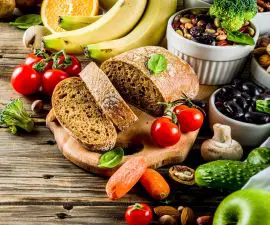

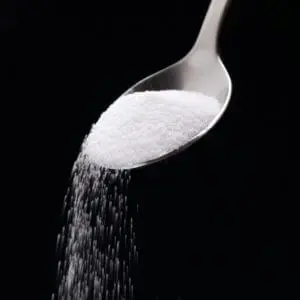
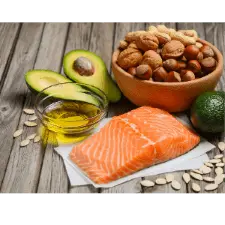
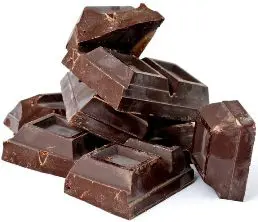
 Circling back to that feeling of overwhelm opening a jam-packed closet…
Circling back to that feeling of overwhelm opening a jam-packed closet…
